Reconceptualizing Privacy
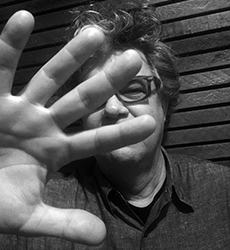
ken anderson
Principal Researcher, Intel Corporation
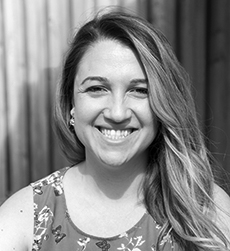
Liz Keneski
Head of Privacy Research, Facebook Inc.
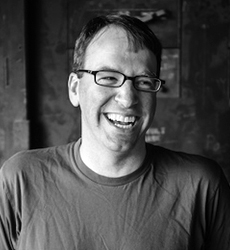
Peter Levin
Principal Researcher, Autodesk
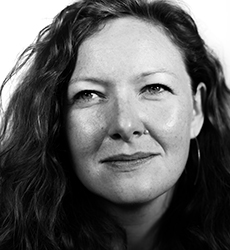
Elena O’Curry
UX Research Manager for Safety, Privacy & Accessibility, Uber
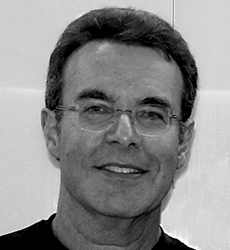
Jeff Sokolov
Designer & Researcher, IBM Watson Health
Saturday, November 9, 4:30–5:45, RISD Auditorium
Algorithmic systems are increasingly integrated into the physical and digital infrastructures of our lives. The borders of privacy are being pushed and redefined, provoking new debate about what privacy is. All corporations claim privacy is important, but what does that mean? Panelists will consider what privacy might look like or mean when individuals are tied into multiple networks, both human and AI.
About the PanelistsLIZ KENESKI leads the Privacy Research Team at Facebook. Her team conducts multi-method, multidisciplinary research to answer foundational questions about how people think, feel, and behave in regard to online and offline privacy. She approaches research and design with a lens from her academic work in social psychology on relationships, striving to improve the relationship between users and technology.
JEFF SOKOLOV is a Design Research Lead at IBM Watson Health where he uses a mixed methods approach to design compelling experiences that support the discovery and sense-making behaviors of physicians. Protecting privacy is a recurring theme in healthcare. He also facilitates a design research guild at Watson Health. Jeff holds a PhD in Cognitive-Developmental Psychology from Carnegie Mellon University and a BS from UC San Diego.
PETER LEVIN is a strategy and research expert specializing in markets, technology, and innovation. He is a principal researcher at Autodesk, where he conducts experience research in order to be the “voice of the user” for the design and technology teams. Peter holds PhD in economic sociology from Northwestern University.
ELENA O’CURRY specializes in connecting physical and digital domains to drive empathetic decision making and design. She leads global Safety, Privacy & Accessibility research at Uber, tackling everything from distracted driving to data protection, and was previously head of UX research at Eero, AltSchool, and Groupon.
Agency & Innovation
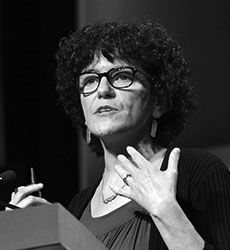
Melissa Cefkin
Principal Researcher, Alliance Innovation Lab Silicon Valley
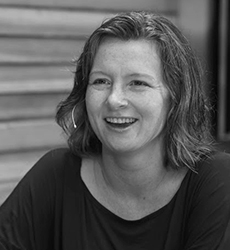
Dawn Nafus
Senior Research Scientist, Intel Labs
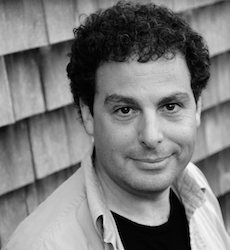
Michael Littman
Professor of Computer Science & Co-Director of the Humanity Centered Robotics Initiative, Brown University
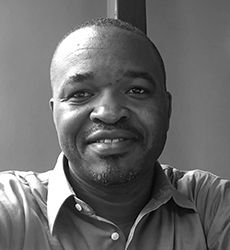
Clapperton Chakanetsa Mavhunga
Associate Professor of Science, Technology, and Society, MIT
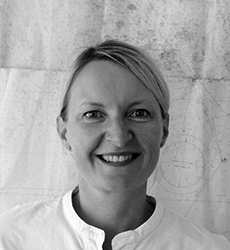
Heli Rantavuo
Senior Insights Manager, Growth Opportunities Mission, Markets Business Unit, Spotify
Sunday, November 10, 4:00–5:30, RISD Auditorium
Robotics, machine learning, and other technologies are provoking new hopes and fears about human agency. Tropes of the charismatic lone innovator, whether hero or villain, are also starting to lose popular currency. When we acknowledge that the agents of the built world are not just people who call themselves “innovators” but are made up of many kinds of people, and physical materials, new questions arise. How do issues of responsibility, accountability, attribution, and even regulation get solved in situations of distributed agency? What new stories about agency need to be told?
About the PanelistsDAWN NAFUS is a Senior Research Scientist at Intel Corporation, where she conducts anthropological research for new product innovation. Her ethnographic research has been primarily on experiences of time, data literacy, self-tracking and wearables. Most recently, she has been working on instrumentation and data interpretation for community-based environmental health projects. Her work takes place in the US and Europe. Dawn was co-chair of EPIC2018 and she is the editor of Quantified: Biosensing Technologies in Everyday Life, co-editor of Ethnography for a Data-Saturated World, and co-author of Self-Tracking. She holds a PhD from University of Cambridge.
MICHAEL LITTMAN studies machine learning and decision making under uncertainty. He has earned multiple awards for teaching and his research has been recognized with three best-paper awards and two influential paper awards for his work on reinforcement learning, probabilistic planning, and automated crossword-puzzle solving. Littman has served on the editorial boards for the Journal of Machine Learning Research and the Journal of Artificial Intelligence Research. He was general chair of International Conference on Machine Learning 2013 and program chair of the Association for the Advancement of Artificial Intelligence (AAAI) Conference 2013. He is co-director of Brown’s Humanity Centered Robotics Initiative and a Fellow of the Association for the Advancement of Artificial Intelligence and the Association for Computing Machinery.
CLAPPERTON CHAKANETSA MAVHUNGA self-identifies as a critical thinker-doer who deploys historical research in service of problem-solving. Chakanetsa joined MIT as an assistant professor in 2008 after completing his PhD at the University of Michigan and is the founder of Research || Design || Build, a village-based institute in rural Zimbabwe dedicated to promoting interdisciplinary problem-solving, innovation, and entrepreneurship among Africa’s rural poor. Chakanetsa has published three books on science, technology and innovation in Africa: Transient Workspaces: Technologies of Everyday Innovation in Zimbabwe; What Do Science, Technology, and Innovation Mean from Africa?; and The Mobile Workshop: The TseTse Fly and African Knowledge Production. He is working on the fourth, titled African Chemistry: Science with an African Totem. He has given numerous talks, including at TED and Google.
HELI RANTAVUO works as Senior insights manager at the Spotify Growth unit. She works on Spotify’s global markets growth, adapting the experience for users around the world, and investigating how to design products inclusive of global audiences with machine learning techniques. Previous to Spotify, Heli has worked in design research and strategic market understanding at eBay, Microsoft and Nokia in London, Stockholm and Helsinki, and as academic researcher while completing her Doctor of Arts degree in Aalto University. She is currently based in Helsinki, Finland.
Agency & the Climate Emergency
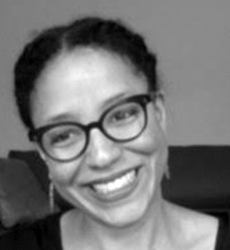
Makalé Faber Cullen
Urban Soils Fellow, Anthropocene, Urban Soils Institute
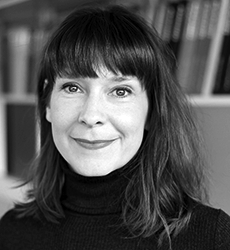
Györgyi Gálik
Lead Advisor, Architecture and Built Environment Team, Design Council
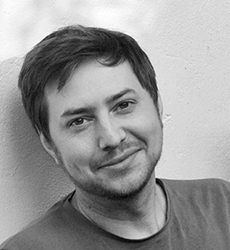
Dan Lockton
Chair of Design Studies & Director of the Imaginaries Lab, Carnegie Mellon University
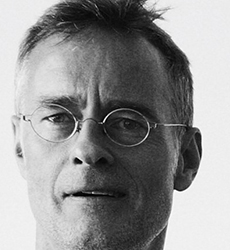
Mike Youngblood
Principal, The Youngblood Group
Monday, November 11, 9:00–10:30 am, Washington Building – Gathering Space
What is ethnographers’ role in dealing with catastrophic climate crisis? Should we be exploring people’s experiences of change, trying to use our insights to help drive individual and collective action at scale through organizations, or helping civil society deal with the consequences? This panel will examine some of these tensions and responsibilities, and the value that ethnographic practice can bring to one of the biggest issues for our collective futures.
About the PanelistsGYÖRGYI GÁLIK is a London-based innovation designer, design researcher, and environmental advocate. She is completing her in Innovation Design Engineering at the School of Design, Royal College of Art, and working as a Lead Advisor of Design Council’s Cities Programme. With a background in strategic design, social science and environmental health, Gyorgyi has more than a decade of experience delivering projects in the corporate, governmental and non-governmental sectors in North America, Asia and Europe. She is particularly interested in voluntary social change and how we can transform socio-ecological systems and our collective relationship towards these systems, to address and respond to contemporary urban challenges. Borrowing insights from a variety of disciplines, her projects explore the effects of human activity on the environment and attempt to address the complex social, political and economic factors that engender and reinforce pollution-producing practices and behaviours. Read more about Gyorgi’s work at http://gyorgyigalik.com/
DAN LOCKTON, panel chair, is an interaction designer, researcher, and Assistant Professor in the School of Design at Carnegie Mellon. His research centers on people’s interactions with technology and the designed world, and how that affects the way we think, act, and understand. Dan leads the new Imaginaries Lab and is Chair of Design Studies in the School of Design. He is also a Faculty Affiliate of the CMU Scott Institute for Energy Innovation, a visiting tutor at the Royal College of Art, London, and a Fellow of the Royal Society of Arts. He is a founding member of the Plurality University Network, a Paris-based international collective of designers, futurists, and science-fiction writers. Among Dan’s many projects and publications are the Design with Intent toolkit (Equifine, 2010), Living Labs: Design and Assessment of Sustainable Living (Springer, 2016), Creative Citizens’ Variety Pack: Inspiring Digital Ideas from Community Projects (RCA, 2014), and Drawing Energy: Exploring Perceptions of the Invisible (RCA, 2015).
MIKE YOUNGBLOOD, is a cultural anthropologist working at the nexus of social science and human-centered design. He has worked with for-profit and not-for-profit clients around the world in a wide range of industries, including financial services, transportation, telecommunications, food and nutrition, education, healthcare, and social services. Mike is a frequent speaker in the fields of anthropology and design and has taught at the School for International Training, Maryland Institute College of Art, UC Berkeley Haas School of Business, and Hasso Plattner Institute of Design at Stanford University. His recent book is Cultivating Community: Interest, Identity, and Ambiguity in an Indian Social Mobilization and he is editor of the series Sustainability and Ethnography in Business Series on the EPIC blog Perspectives. Mike holds a PhD in cultural anthropology from the University of Wisconsin, Madison.
Representation & Representative-ness: Experts, Expertise, and Ethnographic Practice
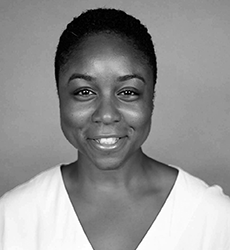
Amber Greene
Experience Research & Service Design, Cityblock Health
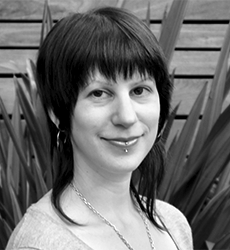
Jordan Kraemer
Research Associate, Implosion Labs, LLC
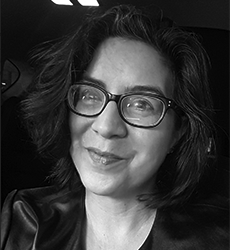
Donna Lanclos
Anodyne Anthropology LLC
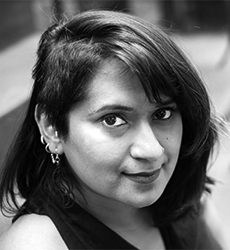
Ruchika Muchhala
Consultant/Filmmaker, Third Kulture Media
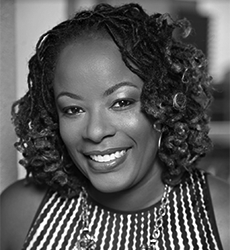
Autumn Sanders Foster
Founder, Quire Consulting
Monday, November 11, 11:00 am–12:30 pm, Washington Building – Gathering Space
Ethnographers take pride in representing people’s voices with fidelity, empathy, and deep contextual understanding. But our work can end up reinforcing a distinction between people who “have experience” that we study for insights and people who “have expertise” to use, shape, and monetize that experience. We’ll tackle a range of core questions:
As organizations increasingly value representations of “user” or “customer” experience, what responsibilities come with this role? To what extent are we confronting the ways that the anthropologist on the project gets used to distancing people from their own expertise about their everyday lives? When we present our research and recommendations to clients and communities, are we asked about whether the people we did our research among are “representative”? What does “representation” mean, in which contexts? How has that idea been used to disenfranchise people? Who are the people who are listened to as “representative?”
In some cases, emphasizing proportionate representation, for example, overlooks ways some users or people are disproportionately affected by certain practices or technologies, just as marginalized or minoritarian groups. This panel brings together practitioners working across many different sectors (health, finance, media, education) to discuss their own experiences around representation and “representativeness” within their research and work. How do we make visible those who are not in the room?
About the PanelistsAMBER GREENE is Manager of Member Experience Research and Service Design at Cityblock Health, a tech-driven provider for underserved communities implementing local models of care. Amber also has been a user experience researcher and analyst at Flatiron Health, Weight Watchers, and Google. She holds a BA in public policy from Stanford University. You can connect with her on LinkedIn.
JORDAN KRAEMER is a media anthropologist who brings critical perspectives to technology, design, and UX. She holds a PhD in cultural anthropology from the University of California, Irvine, and is completing a forthcoming book on emerging media, social class, and urban space in Berlin. She is currently a research associate at Implosion Labs LLC, in NYC, and an adjunct instructor at NYU Tandon, where she teaches feminist and queer STS and digital ethnography. She was previously a Mellon Postdoctoral Fellow at Wesleyan University. She also writes and speaks about transnationalism, digital labor, feminist UX, mobility, and precarity. You can find her on Twitter @jordanisme and learn more about her work on her website.
DONNA LANCLOS is an anthropologist who has been working with libraries and higher education as her field site since 2009. Her first fieldwork was in the late 1990s in Northern Ireland, which prepared her well for dealing with the fragmented and fractious landscape of universities, libraries, and conflicting and confounding identities, practices, and priorities therein. She writes, thinks, and speaks about the nature of information, digital and physical places, and higher education generally. Her work is relevant not just to libraries or universities, but to conversations about how we as a society make sure that people have opportunities to learn how to think critically, to practice those skills, and to find their voices. She regularly presents workshops and talks on issues of digital practices and institutional change, and blogs about her work at www.donnalanclos.com. You can also find her on Twitter, @DonnaLanclos.
RUCHIKA MUCHHALA is a filmmaker and design researcher based in New York City. She has directed and produced two feature documentaries that have been shown at international film festivals, broadcast on television, and screened at prestigious academic institutions. They are currently available on Netflix. With over a decade of experience in the television and film industry, Ruchika has produced television shows and documentaries for VICE Media, MTV, History Channel, Discovery Channel, Crime & Investigation Channel, and RedBull TV. She has also produced numerous independent films and campaign videos for nonprofit clients such as the Association for Women in Development, Acumen Fund, and grassroots organizations such as La Casa de Don Pedro in Newark, NJ. She holds a BA in film studies and sociology from The University of Michigan and an MFA in design for social innovation from The School of Visual Arts. She currently works at The Sound, where she works on recruiting, research planning, and shoots film. Check out her website to learn more about her work.
AUTUMN SANDERS FOSTER has worked with Fortune 500 companies, start-ups and non-profits, helping them grow their businesses by understanding their customers. She launched Quire Consulting in 2017 to provide customers access to ethnographic research and design strategy that brings real people into the center of the design process. She leads clients through experiences with end users to develop effective, scalable solutions to the challenges her clients face. Autumn has worked with clients across a range of industries including education, arts, health care, retail, human resources, CPG, consumer electronics, and food. Autumn sees community engagement as essential to her work and role as a citizen. She serves on the board of Space One Eleven, a contemporary art gallery and center for arts education. She joined the Birmingham YMCA’s marketing advisory team in 2018. She also teaches tennis to elementary students through Better Basics. Autumn holds a bachelor’s degree in journalism from Ohio University (Athens, OH) and master’s degrees in design management and graphic design from the Savannah College of Art and Design (Savannah, GA).
